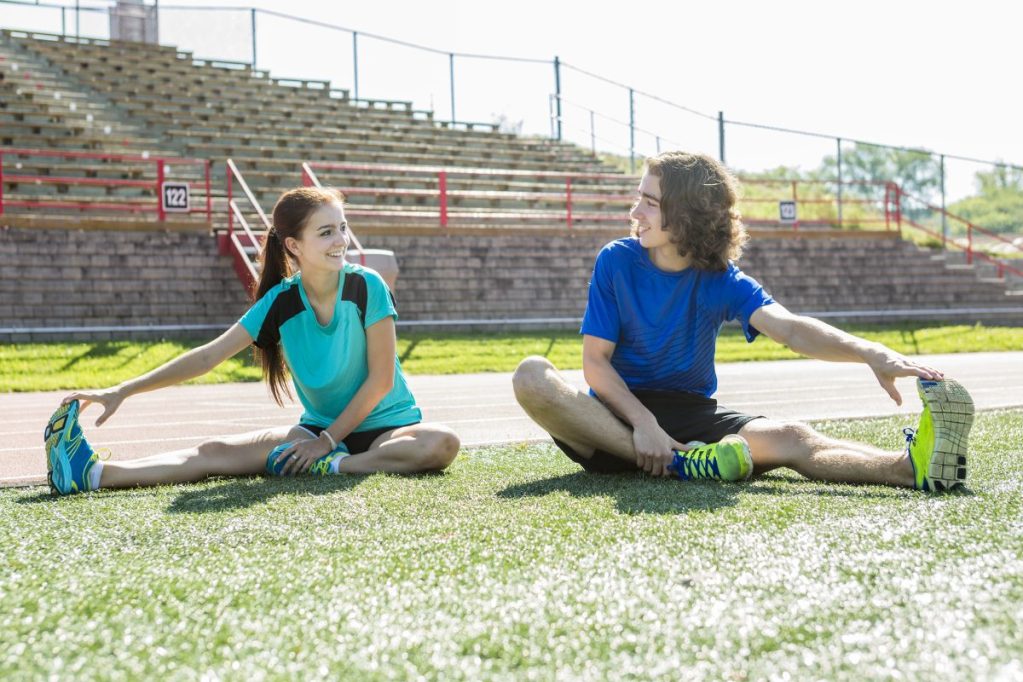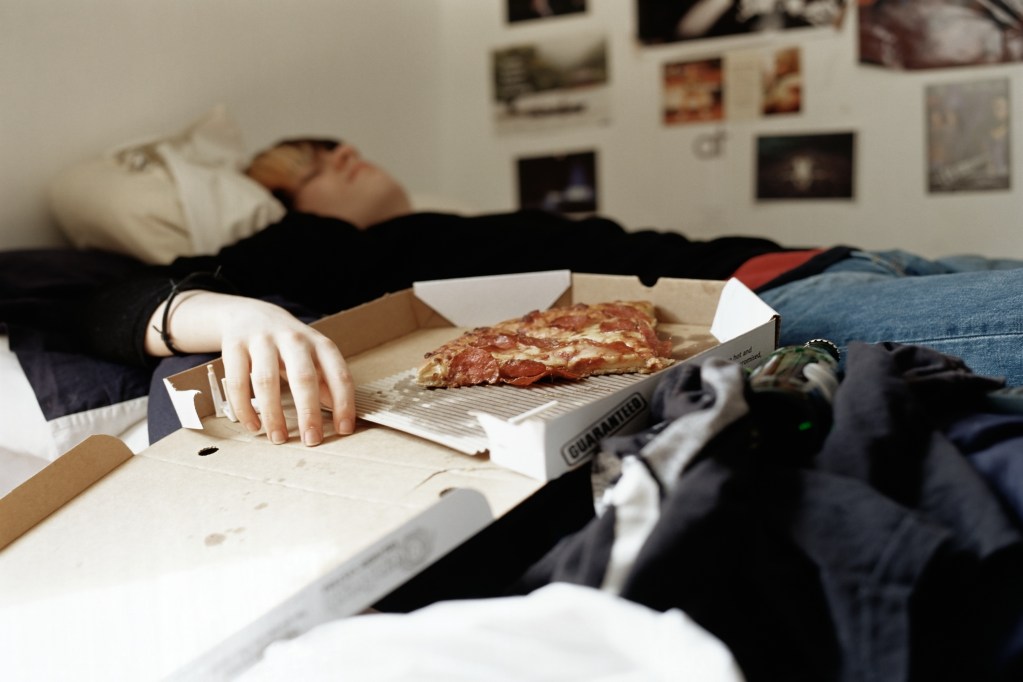Parents want nothing more for their kids than for them to be healthy and happy. When a teen is struggling with their weight, they can often feel unhealthy and suffer from mood swings and depression. Unfortunately, many teens assume their weight is their own problem to deal with alone. Teens often don’t understand that weight fluctuations are a very normal part of growing up, and as long as they’re healthy, they shouldn’t stress over it.
If your teen has expressed concern about their weight or general health, you can support them by incorporating lifestyle changes as a family. If you’re struggling with how to help your teenager lose weight in a supportive and non-judgemental way, here are some weight loss plans for teenagers to help get their energy up and their fitness back on track.
What not to do

You may be tempted to talk to your teen about their weight and suggest a diet, but research shows that neither of these strategies is effective, and in fact, both often backfire. An effective weight loss plan for teenagers should be to encourage them to choose nutritious foods and develop healthy behaviors. If you want to know how to help your teenager lose weight, focus on the supportive aspect.
Even if they’re not talking about it, your teen knows they are overweight. Children and teens who are overweight are at risk for bullying and lower self-esteem, and your teen may already have negative emotions tied up in their body size. If you comment on their weight, your weight, or others’ weight, even when it’s a well-intentioned conversation, your teen is likely to feel hurt and judged.
Dieting has a similar effect. Fad diets could result in initial weight loss, but the weight generally returns quickly after the diet ends. This may lead to yo-yo dieting and can increase a person’s long-term odds of weight issues. These kinds of diets also lead to eating disorders. Quick weight loss might seem desirable, but shedding pounds this way isn’t worth the continued risks to your teen’s physical and mental health.
So, instead of talking about weight and suggesting diets, what should you do to help your teen? The following tips can help parents of teens of any fitness level lead healthier lives.
When should you worry about your teen’s weight?

Your child is going to go through a lot of physical changes as they grow and mature. It can be hard to determine if weight gain is the result of an impending growth spurt, genetics, or lack of activity and poor diet. The experts at the Cleveland Clinic say that you only need to worry about your teen’s weight if their BMI is high.
Your pediatrician can help calculate your teen’s BMI by measuring their weight and height. “If the BMI is over the 95th percentile, the child is considered to have obesity.” Taking your teen to the pediatrician for an annual check-up will also allow your doctor to recognize if there have been any drastic changes in their weight and if regular growth cycles may contribute to those changes.
Look at their diet directly
Here are some small changes you can make to help encourage a healthier lifestyle for your teen.

Encourage drinking water rather than sugary substitutes
Staying hydrated is important, and water is generally the best choice. Sugar-loaded drinks like sodas, sports drinks, and fruit juices add up to a lot of empty calories. Water helps to flush out toxins, which leads to more weight loss.
Instead of forbidding junk foods, fill the house with healthy options
You don’t have much control over what your teen eats at school or afterward, but by providing lots of nutritious foods in the house, such as fruits and vegetables cut up and ready-to-eat, you encourage healthy snacking at home.
Eat meals at home together
Even when it’s not fast food, restaurant meals tend to have significantly higher calories than home-cooked ones. Even better, get your teen involved in meal planning and preparation so that they feel invested in the process.
Help guide their decisions and encourage positive choices
It’s important that your teen you know you’re not judging them, but that you’re there to support them if they need any help.

Frame choices positively
Children and teens respond much better to carefully worded, positive directives. Instead of telling your teen not to eat those fries, ask if they would like some veggies and hummus. Rather than telling them to get off the couch, invite them to go for a walk with you. The same outlook helps make food choices less overwhelming. Instead of limiting calories or cutting out entire food groups, focus on adding fruits, vegetables, fiber, and protein.
Encourage physical activity that your teen enjoys
The goal is to find something they like to do so that they are more likely to do it regularly. Whether your teen likes to be social or prefers quiet time alone, there’s an activity out there that’s just right for them. The American College of Sports Medicine recommends that children and teens get at least 60 minutes of physical activity every day, but these don’t need to be consecutive minutes.
Start small with a quick evening walk or weekend bike ride and work your way up to a full hour every day. The goal of exercise shouldn’t be to lose pounds or inches, but to increase fitness and improve health. Let them see you exercising, too, and find opportunities for the family to get moving together.
Healthy habits start at home
It will be easier for teens to develop healthy habits if those examples are being set at home.

Limit screen time and encourage sleep
There are many reasons to limit screen time, including the mindless snacking it encourages, and the interruptions to sleep. Not only do teens stay up late on their devices, but nighttime screen use makes falling asleep more difficult.
Sleep is critical for overall health, and lack of sleep is associated with weight gain. Not getting enough sleep has also been shown to interfere with hormones that regulate hunger, leading to overeating. In addition, insufficient sleep leaves you too tired for physical activities.
Foster a realistic, healthy body image
Teens need to understand that genetics and body type play a major role in determining their weight and appearance, and going hungry or exercising intensely is unlikely to alter the way they look. It’s also important that they know it’s normal to gain weight as they grow and undergo puberty. Do your part by limiting the comments you make about people’s bodies, including your own.
When to seek professional help

It’s perfectly normal for your teen’s weight to fluctuate as they mature, but if you’re concerned about their weight and health, speak to your pediatrician. There’s no shame in seeking professional help if your child or teen is struggling.
Amanda Velazquez, MD, director of Obesity Medicine at the Cedars-Sinai Center for Weight Management and Metabolic Health, explained that diet and exercise aren’t always the solution to weight issues and that obesity is a chronic and complex disease. “We really want to see kids have their health addressed as soon as possible in the disease process, using existing treatments that are proven to work,” she noted.
Your teen is learning to live in their changing body, and the habits they develop now will impact their physical and emotional health for the rest of their life. Do all that you can to encourage positive, healthy choices to help them feel good about their bodies. Remember to refer to these tips to help your teen be the healthiest version of themselves.




